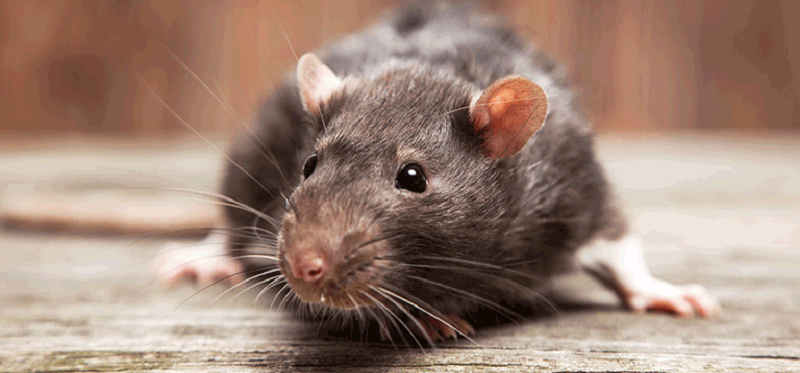GRENADA (April 21, 2024) – The Caribbean Tourism Organization (CTO), in partnership with the Grenada Tourism Authority, has curated a dynamic lineup of industry leaders and development partners for its Sustainable Tourism Conference (STC 2024). The gathering aims to explore new strategies for enhancing sustainable tourism amidst evolving global challenges.
Slated for April 22-24, 2024, and centered around the theme The 5 Ps – People, Planet, Prosperity, Purpose and Partnership, the event brings together experts who will discuss creating innovative tourism experiences that capitalize on the Caribbean’s rich natural and cultural resources and presents strategies and best practice solutions to benefit from emerging opportunities and address sustainable tourism challenges.
Adam Stewart, Executive Chairman of Sandals Resorts International and a renowned leader in sustainable tourism, will deliver the keynote address on April 22. His remarks are expected to inspire a series of productive discussions on building a resilient and responsible tourism infrastructure in the region.
The conference will feature an impressive roster of speakers sharing their expertise on sustainable tourism development during the following sessions:
GENERAL SESSION I – Planet: Preserving Paradise – Nurturing Nature for a Sustainable Future (April 22, 10:30 am – 11:45 am): This session recognizes the vital connections between the health of our planet and the well-being of all living beings, including humans. Emphasizing the urgent need for conservation action, participants will engage in discussions that transcend rhetoric, focusing instead on tangible solutions and practical interventions. Speakers include:
- Christopher Corbin, Coordinator, Cartagena Convention Secretariat, United Nations Environment Programme (UNEP)
- Giselle Carr, Head of Brand and Communications, InPlanet
- Maria Fowell, Senior Technical Specialist-Tourism, Economic Development Unit, Organisation of Eastern Caribbean States Commission
- Rosana John, Attorney-at-Law, Dentons Delany
- Michael Russek, Artist, Designer, Fabricator & Eco Creator
- Maxine Welsh (Moderator), Director, The Nature Conservancy, Eastern Caribbean Division
GENERAL SESSION II – People: Breaking Barriers, Building Bridges: Harnessing Equity, Education, and Empowerment in Tourism (April 22, 11:45 am – 1:00 pm): The session will explore the pivotal role of diversity, equity, inclusion and education within the tourism sector to empower individuals and drive sustainable development. Speakers include:
- Tonni Brodber, Representative of UN Women Multi-Country Office, Caribbean
- Dr. Acolla Lewis Cameron, Dean, Faculty of Social Sciences, University of the West Indies, St. Augustine Campus
- Amrita Bhalla, Managing Director, A.B. Consulting
- Melnecia Marshall, Deputy CEO, St. Kitts Tourism Authority
- Christopher Lee, Executive Recruiter & Consultant, BIPOC Executive Search
- Richard Young (Moderator), Fashion Director & Creative Consultant, Richard Young Inc.
GENERAL SESSION III – Indigenous Excellence: Championing Community, Country and Congruence with Destination Grenada (April 22, 2:15 pm – 3:30 pm): As Grenada celebrates 50 years of independence in 2024, this session highlights the nation’s achievements in fostering Indigenous Excellence through public and private partnerships. Speakers include:
- Dr. Angus Friday, Strategic Partnerships Director, Waitt Institute, and Executive Chairman, Atlantean BioSphere Program
- Tiffany Geer, Marketing Manager, Event Coordinator and Dive Master, Aquanauts Grenada
- Dr. Guido Marcelle, Pharmacognosist, Environmentalist and Practicing Natural Farmer
- Mr. Phil Saye, Director, Grenada Fund for Conservation
- Petra Roach (Moderator), Chief Executive Officer, Grenada Tourism Authority
MASTER CLASS – Building Resilience Across the 5Ps: Strategies for Tourism Resilience & Competitiveness (April 22, 3:45 pm – 4:45 pm): This dynamic session will explore strategies to bolster resilience within the Caribbean tourism sector, focusing on environmental sustainability, comprehensive disaster management, climate variability and climate change. Speakers include:
- Dr. Deborah Brown, Disaster Recovery Specialist, Caribbean Disaster Emergency Management Agency
- Barry Collymore, Owner and Executive Chairman, Mount Cinnamon Beach Resort; Co-Founder of West Indies School of Hospitality (WISH)
- Dr. Roché Mahon, Social Scientist, Caribbean Institute for Meteorology & Hydrology
- Prof. Lloyd G. Waller (Moderator), Professor of Digital Transformation Policy and Governance, University of the West Indies; Executive Director, Global Tourism Resilience and Crisis Management Centre
Market & Industry Insights Panel (April 23, 8:15 am – 9:00 am): A panel convening experts from the primary source markets and key industry stakeholders to offer perspectives on the latest policies, trends, and developments shaping the tourism landscape. Speakers include:
- Carol Rose, Head of Sustainability, ABTA, The Travel Association
- Hannah Swift, Country Manager – Caribbean, Virgin Atlantic Airways Ltd.
- Dr. Allison T. Walker, Chief Surveillance Officer, Travelers’ Health Branch, Centers for Disease Control and Prevention
- Rich Pruitt, Vice President of Environmental Operation, Carnival Cruise Line
- Kendra Hopkin Stewart, Deputy Managing Director, Blue Horizons Garden Resort; President, Grenada Hotel and Tourism Association
- Frank Comito (Moderator), Special Advisor and Former CEO/DG, Caribbean Hotel and Tourism Association
Inter-Ministerial Dialogue on Cooperation and Intersectoral Linkages (April 23, 9:00 am – 9:30 am): This fireside chat will feature spirited contributions from four Ministers of the Government of Grenada on modern challenges and solutions in sustainable development and disaster risk reduction. Speakers include:
- Senator Adrian Thomas, Minister for Tourism, Creative Economy & Culture, Grenada
- Lennox Andrews, Minister for Economic Development, Planning, Agriculture and Lands, Forestry, Marine Resources & Cooperatives, Grenada
- Kerryne James, Minister for Climate Resilience, Environment & Renewable Energy, Grenada
- Senator Jonathan La Crette, Minister of Youth and Sports, Grenada
- Bevan Springer (Moderator), President, Marketplace Excellence Corporation
GENERAL SESSION IV – Prosperity: Pathways to Prosperity for Sustainable Futures: Sustainable Tourism Financing Donors’ Roundtable (April 23, 9:30 am – 10:30 am): This panel features an illustrious gathering of representatives from primary donor agencies, regional and international development organizations, and financial institutions supporting the Caribbean’s sustainable development. Speakers include:
- Dr. Louise Twining-Ward, Senior Private Sector Specialist, The World Bank
- Dr. Stacy Richards-Kennedy, Regional Manager for the Caribbean, CAF – Development Bank of Latin America & the Caribbean
- Petipha Lewis, Director, Board of the Caribbean Biodiversity Fund; Chair, Network of Caribbean Chambers of Commerce (CARICHAM); Executive Director and Secretary to the Board of Directors of the Grenada Chamber of Industry and Commerce
- Chris McNair, Programme Specialist, Business Development, CARICOM Development Fund
- Wayne Elliott, Productivity & Innovation Coordinator, Compete Caribbean Partnership Facility
- Amanda Charles (Moderator), Sustainable Tourism Specialist, Caribbean Tourism Organization
GENERAL SESSION V – Purpose: Purpose Driven Tourism: Uniting Purpose with Passion for Sustainable Tourism (April 23, 11:00 am – 12:15 pm): This session brings together industry leaders, stakeholders and enthusiasts to explore the intersection of purpose and passion in sustainable travel. Discussions will explore how travelers and tourism providers can align their values and aspirations with meaningful experiences contributing to sustainable development goals. Speakers include:
- Alicia Johnson, Author, Lonely Planet
- Dr. Thérèse Yarde, Caribbean Fellow/Senior Director, Caribbean SIDS Programming, Conservation International
- Kirpa Grewal, Co-Chair, Volunteerism Committee and Executive Committee Member, Women in Cleantech & Sustainability Board of Directors
- Kitaka Mawuto, Chief Executive Officer, Elevate Media
- Russ Fielden, Owner, True Blue Bay Resort
- Michael Carabash (Moderator), Partner, DMC LLP
GENERAL SESSION VI – Partnership: Synergizing Sustainability: Fostering Public, Private, and Community Partnerships in Tourism (April 23, 12:15 pm – 1:30 pm): This session focuses on the transformative power of multi-stakeholder partnerships in advancing sustainability within the tourism industry. It aims to chart new pathways toward inclusive and responsible tourism development by fostering collaboration.
- Michael Akin, President, LINK Strategic Partners
- Marc Melville, CEO, Chukka Caribbean Adventures Group
- Trevor Jonas Benson, President & Chief Executive Officer, Bannikin
- Annie Bertrand, Public-Private-Community Partnership Consultant, SIDS Global Business Network
- Glenn Mandziuk, CEO, Sustainable Hospitality Alliance
- Michelle Mason, Social Impact and Recognition Manager, Sustainable Hospitality Alliance
- Kennedy Pemberton (Moderator), Director of Operations, Green Case Consulting
MASTER CLASS – Fu-Tech Tourism: Demystifying the Myths and Exploring the Risks, Benefits and New Opportunities (April 23, 2:45 pm – 3:45 pm): Engage with the future of technology (Fu-Tech) in tourism through this enlightening discussion. The session will debunk myths and explore the risks, benefits, and new opportunities presented by emerging technologies, setting the stage for innovation in the industry. Speakers include:
- Ed Limon, Co-Founder and Producer, Winged Whale Media
- Kyle Maloney, Tech Ecosystem Builder; Digital Marketer; Investor; Co-Founder, Tech Beat Retreat
- Stacey Hines, Founder & CEO, Epic Transformation
- Orlando Romain (Moderator), Advisor, Grenada Ministry of Planning and Economic Development, with responsibility for ICT and the Creative Economy
CONVERGENCE POINT – Bridging Perspectives for Future Tourism (April 23, 4:00 pm – 4:45 pm): The closing session is designed to bring together diverse perspectives and stimulate dialogue and action that will help shape the future of Caribbean tourism. It explores how stakeholders are working to address challenges, meet market demands, tap into new trends and promote responsible tourism while embracing The 5Ps: People, Planet, Prosperity, Purpose and Partnership. Speakers include:
- Shelley V. Worrell, Founder, I AM CaribBeing and Little Caribbean NYC
- Rodney Payne, Chief Executive Officer, Destination Think
- Oneidge Walrond, Minister of Tourism, Industry & Commerce, Guyana
- Aria Laidlow-Ferdinand, Technical Officer, Caribbean Natural Resource Institute (CANARI)
- Krisma McDonald, Director of Sustainability, Six Senses La Sagesse
- Tenille Clarke (Moderator), Managing Director, Chambers Media Solutions
Partners and sponsors for STC 2024 include LINK Strategic Partners, Little Caribbean NYC, Royal Caribbean International, Silversands Grenada Beach Resort, and Six Senses La Sagesse Grenada Resort.
Airline partners include interCaribbean Airways and Virgin Atlantic.
Sponsors of the Caribbean Sustainable Tourism Awards are the Grenada Hotel and Tourism Association, Grenada Investment Development Corporation, International Institute of Tourism Studies at the GW School of Business, and World Sustainable Travel and Hospitality Awards.
Media partners signed up for the conference are Breaking Travel News, Caribbean Broadcasting Union, Caribbean Media Corporation, and Wanderlust.
Visit caribbeanstc.com for more information about the conference, speakers, sessions and registration details. To learn more about the Grenada Tourism Authority, visit puregrenada.com.


 News6 days ago
News6 days ago
 Health7 days ago
Health7 days ago
 TCI News3 days ago
TCI News3 days ago
 Caribbean News5 days ago
Caribbean News5 days ago
 Education5 days ago
Education5 days ago
 Caribbean News1 week ago
Caribbean News1 week ago
 Caribbean News5 days ago
Caribbean News5 days ago
 Bahamas News1 week ago
Bahamas News1 week ago











